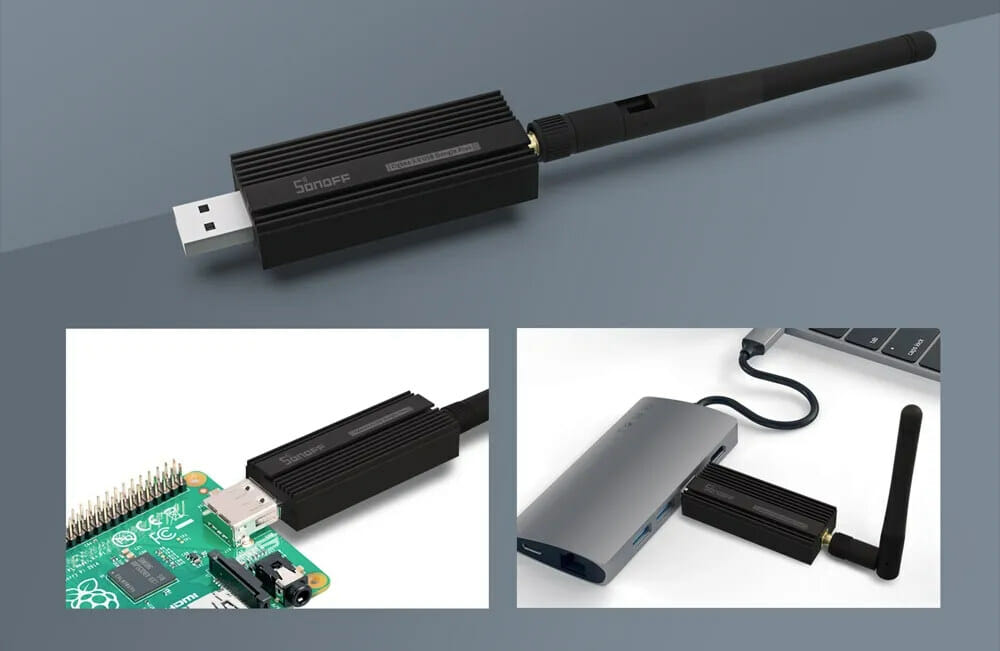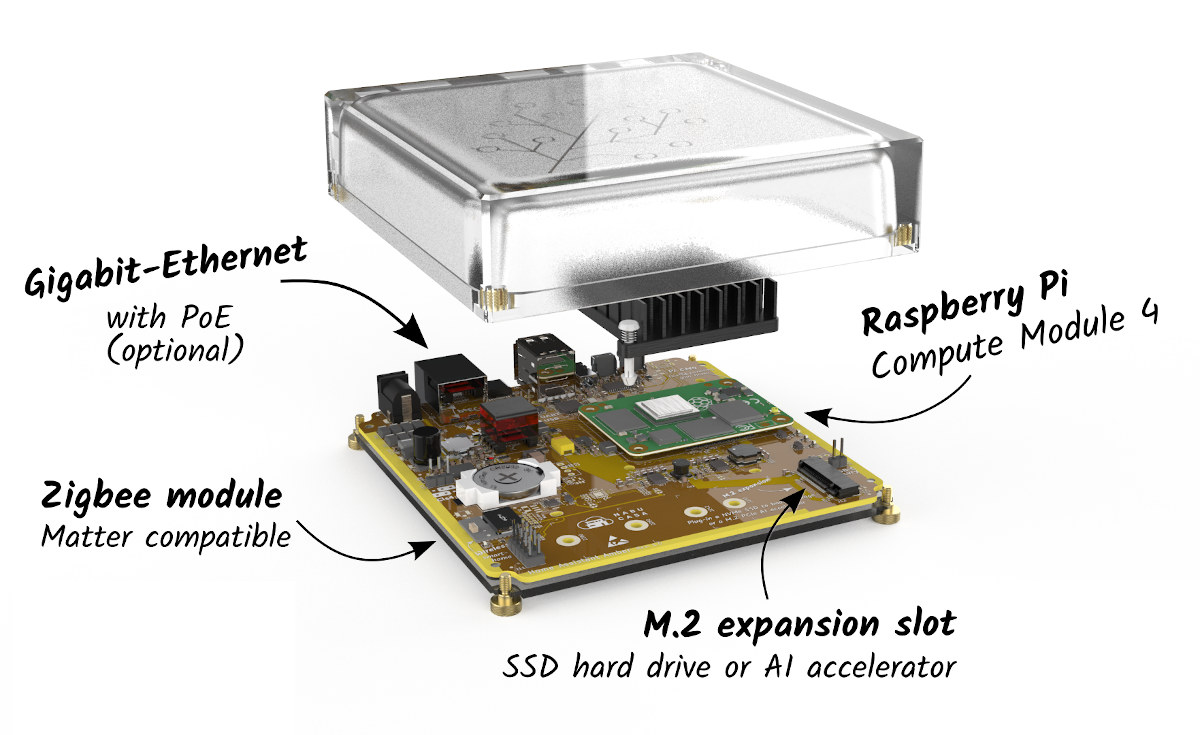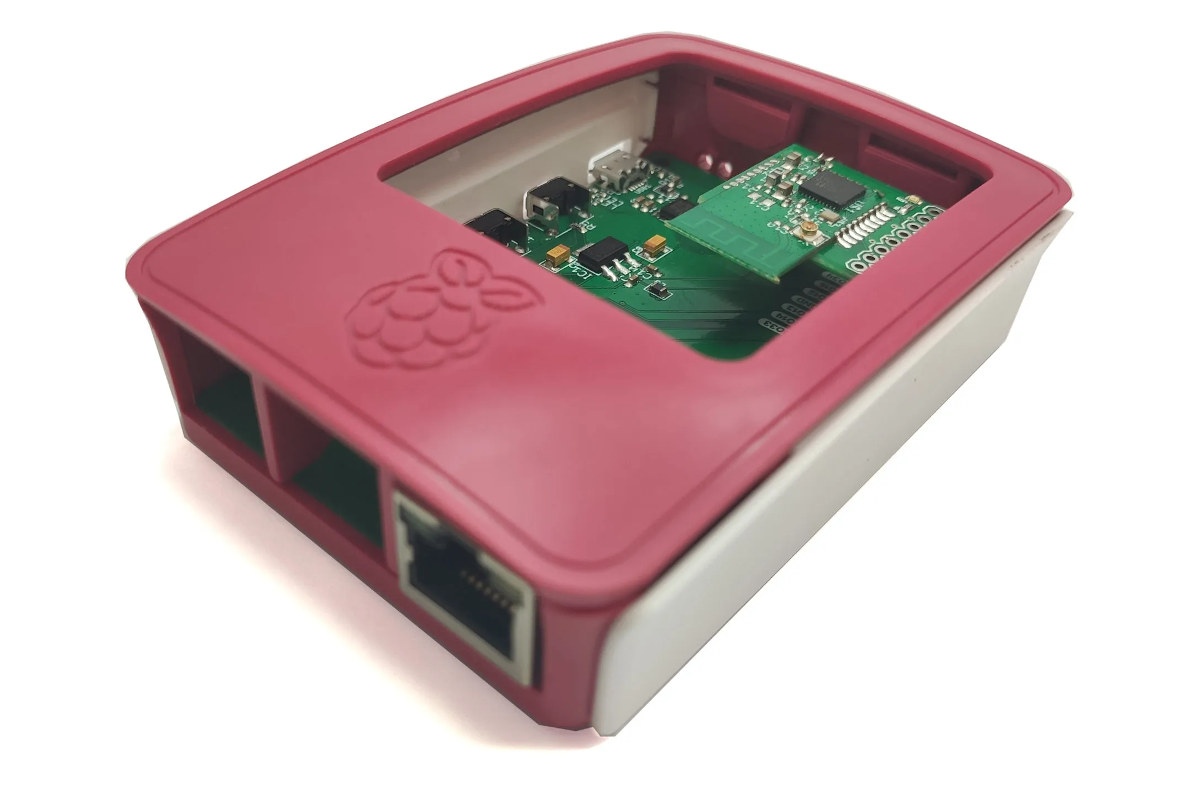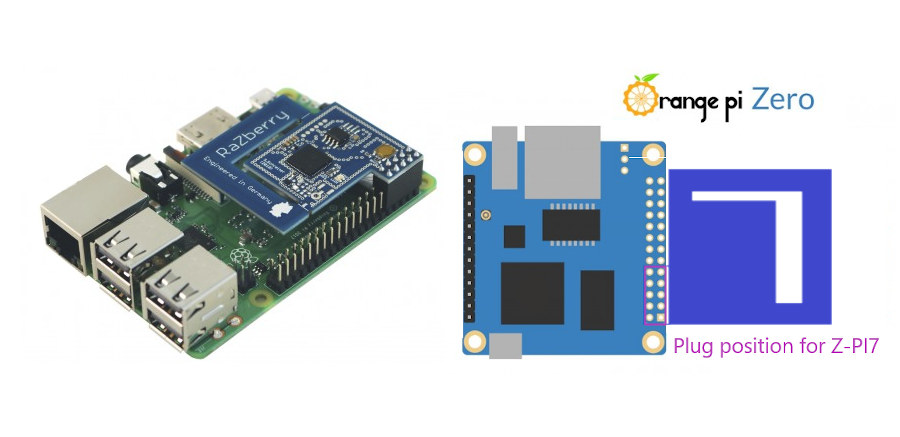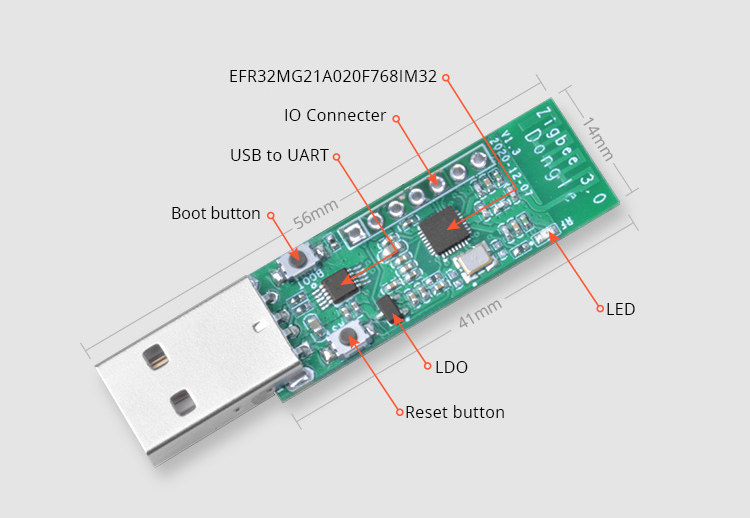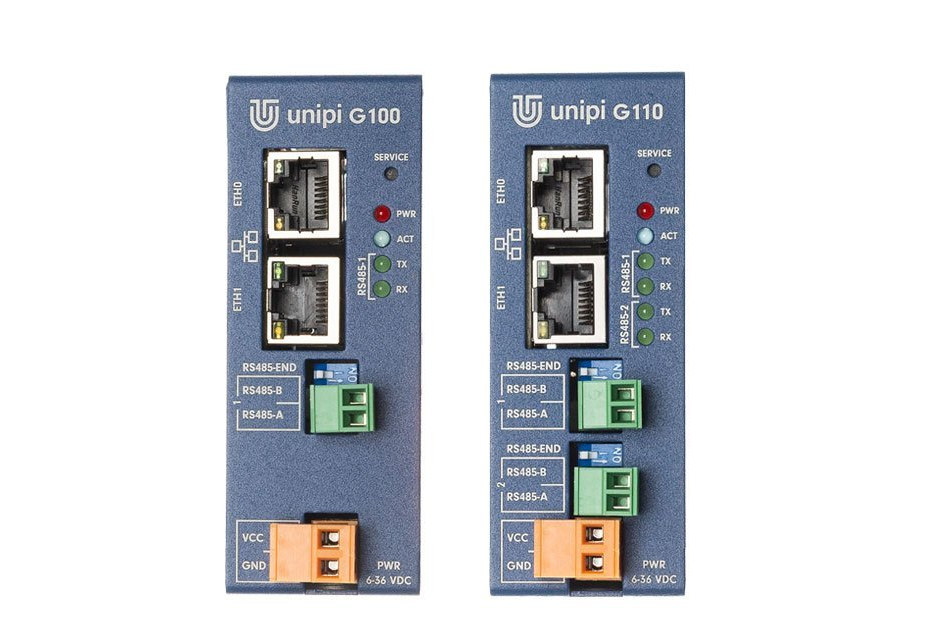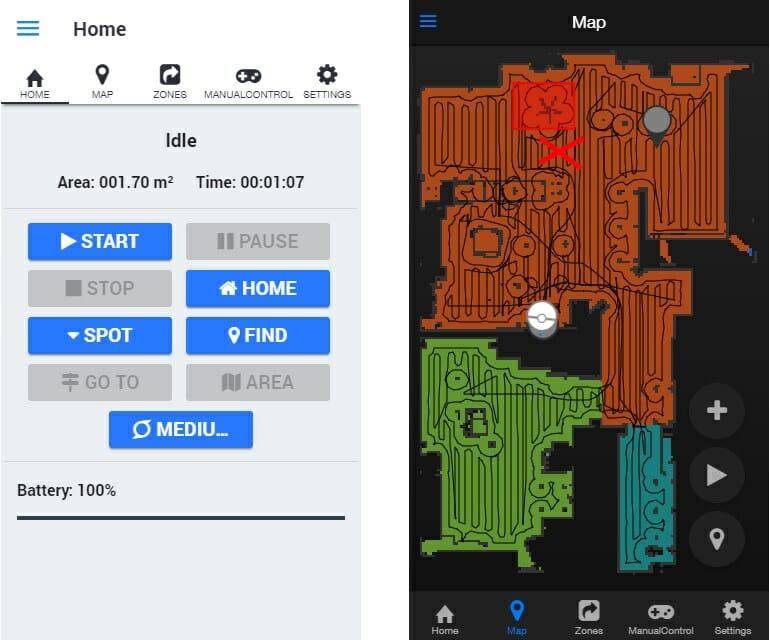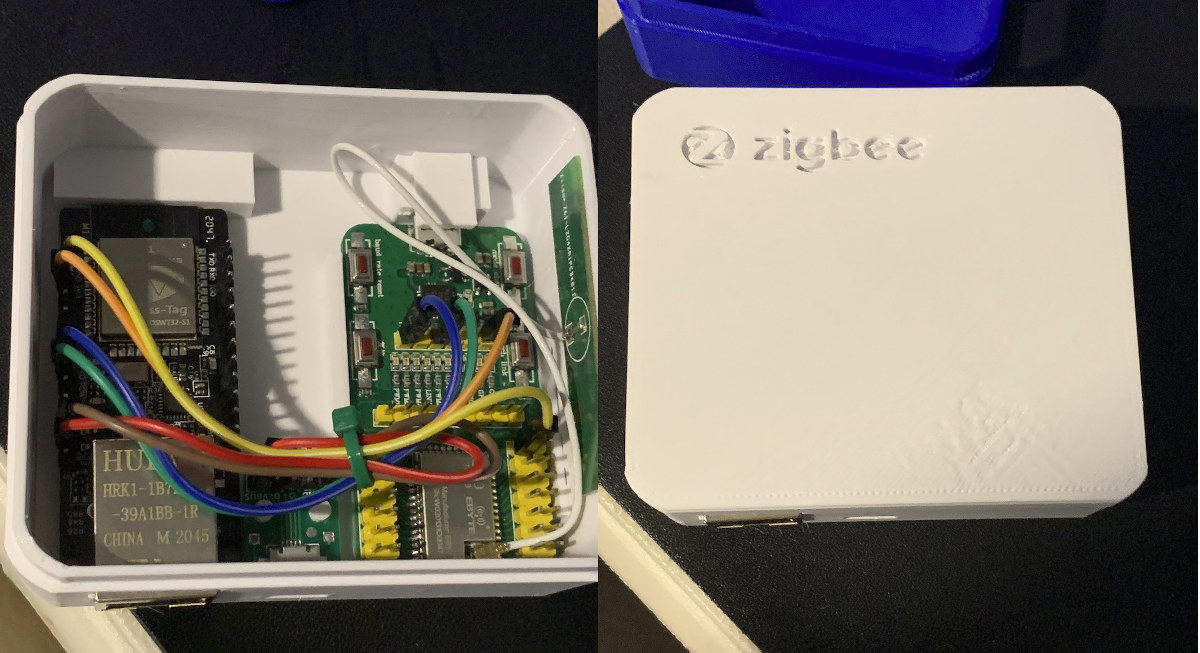ITEAD has launched a new Zigbee dongle with the Sonoff Zigbee 3.0 USB Dongle Plus powered by Texas Instruments CC2652P wireless MCU which follows the company’s Zigbee 3.0 USB Dongle based on Silicon Labs EFT32MG21 Cortex-M4 microcontroller. The dongle is pre-flashed with Z-Stack 3.x.0 coordinator firmware which enables ZHA in Home Assistant or Zigbee2MQTT compatibility. Sonoff Zigbee 3.0 USB Dongle Plus (ZBDongle-P) specifications: Wireless MCU – Texas Instruments CC2652P SimpleLink Arm Cortex-M4F multiprotocol 2.4 GHz wireless MCU with integrated power amplifier for Bluetooth 5.2 Low Energy, Thread, Zigbee 3.0 Connectivity – Zigbee 3.0 with SMA antenna connector, +20 dBm output gain Host interface – USB port with CP2102N USB to TTL chip Expansion – 5-pin IO header with programming pins Misc – Boot and reset buttons, LED, DIP switch for hardware flow control Power Supply – 5V/100mA via USB port, LDO Dimensions – 87 x 25.5 x 13.5 mm (Aluminum […]
Home Assistant Yellow – A Raspberry Pi CM4 based automation gateway (Crowdfunding)
The team behind the popular Home Assistant open-source home automation framework has just launched their second hardware with Home Assistant Yellow automation gateway based on Raspberry Pi CM4 module. This follows last year’s ODROID-N2+ based Home Assistant Blue which was a limited edition and has now been discontinued, albeit still supported. The carrier board for Home Assistant Amber is designed from scratch and notably includes Silicon Labs MGM210P Mighty Gecko Module with support for Zigbee 3.0, OpenThread, and Matter (Soon), as well as M.2 socket that can take an NVMe SSD, or an AI accelerator card. Home Assistant Yellow specifications: Supported SoM – Raspberry Pi Compute Module 4 (CM4) with Broadcom BCM2711 quad-core Cortex-A72 processor @ 1.5 GHz, up to 8GB RAM, up to 32GB storage. (Note: optional WiFI 5 and Bluetooth 5.0 connectivity not covered by regulatory approval) Storage – Support for NVMe SSD via M.2 socket, bootable for […]
ZiGate-Ethernet – An ESP32 Ethernet, WiFi, and BLE Gateway with optional Zigbee connectivity
Frédéric Dubois, aka fairecasoimeme, has recently released ZiGate-Ethernet, an home automation gateway based on Espressif Systems ESP32 wireless SoC with Ethernet, WiFi, and Bluetooth LE connectivity. The gateway can also take an optional PiZiGate+ Zigbee module for support for a wider range of home automation gizmos, and everything is designed to fit in the official Raspberry Pi 4 enclosure. ZiGate-Ethernet specifications: Wireless module – ESP32-WROOM-32E with ESP32 dual-core processor, 16MB flash, PCB antenna Connectivity 10/100M Ethernet RJ45 port implemented through LAN8720 as on several other ESP32 Ethernet boards 2.4GHz WiFI 4 Bluetooth LE 4.2/5.x Zigbee through PiZiGate+ module with PCB antenna or optional external antenna USB – Micro USB port for power and programming Expansion – 16-pin GPIO header with up to 10x GPIO, 7x ADC, UART, 5V, 3.3V, and GND Misc- Reset and Flash button, ESP32/FTDI UART selection switch, Power Supply – 5V/500mA via micro USB port Dimensions – […]
Z-Pi 7 Z-Wave gateway devkit works with Raspberry Pi and Orange Pi Zero boards
WiFi & Bluetooth are the most popular wireless protocols for home automation, alternatives like Zigbee and Z-wave have also been widely adopted, at least in some countries. And if you are interested in the latter, Aeotec has just introduced the Z-Pi 7 gateway development kit that lets you add Z-Wave connectivity to Raspberry Pi boards or Orange Pi Zero SBC with an expansion board connected over UART through the GPIO header. Aeotec Z-Pi 7 Z-Wave expansion board (ZWA025) specifications: Z-Wave connectivity Silicon Labs EFR32ZG14 Arm Cortex-M4 SoC @ 39 MHz with Series 700 and Gen7 technology Frequencies ZWA025-A: US Frequency 908.42 Mhz ZWA025-B: AU Frequency 921.42 Mhz ZWA025-C: EU frequency 868.42 Mhz TX Power – US: +9.3 dBm; EU: +4.8 dBm RX sensitivity – -97.5 dBm Range Indoor – US: 70+ meters; EU: up to 60 meters Outdoor – Up to 200 meters SmartStart native integration and S2 security. Z-Wave Plus Certified […]
$7 ITEAD Zigbee 3.0 USB dongle features Silicon Labs EFR32MG21 MCU
ITEAD is known for its Sonoff home automation products that started with ESP8266 WiFi and/or RF connectivity several years ago, but more recently the company started to offer Zigbee compliant products including Sonoff BASICZBR3 smart switch, Sonoff ZBBridge WiFi to Zigbee Gateway, or a cheap $4 CC2531 Zigbee USB Dongle compatible with Zigbee2MQTT open-source firmware. The company has now launched a more powered Zigbee 3.0 USB dongle, yet still affordable at $6.99, based on the same Silicon Labs EFR32MG21 wireless MCU as used in the Sonoff ZBBridge with a faster core, more RAM, and a more powerful radio. Key features and specifications: Wireless MCU – Silicon Labs EFR32MG21 Arm Cortex-M33 microcontroller @ up to 80 MHz with DSP and FPU, up to 1024 kB flash, up to 96 kB RAM, 2.4 GHz IEEE 802.15.4 for Zigbee or Thread Host interface – USB port Expansion – 7-pin IO header with programming […]
UniPi Gate RS485 Linux IoT Gateway features 600 MHz Rockchip RK3328 SoC
Based in the Czech Republic, UniPi Technology design and manufacture programmable logic controllers, gateways, sensors and systems for smart homes, building management systems, industry and automation projects. Their latest product is UniPi Gate G100/G110 Linux IoT gateway with Ethernet and RS485 interfaces. When the company contacted CNX Software about the gateway, they told us the system was based on a quad-core Cortex-A53 processor clocked at 600 MHz. Since we are not aware of such SoC, we asked, and UniPi told us it was Rockchip RK3328. That processor is normally clocked at 1.5 GHz, and it turns out the company purposely underclocked the processor to 600 MHz to extend the temperature range and reduce the heat emitted by the CPU. UniPi Gate G100 & G110 specifications: SoC – Rockchip RK3328 quad-core Cortex-A53 processor @ 600 MHz System Memory – 512MB RAM Storage – 16GB eMMC flash, MicroSD card slot Networking – […]
Valetudo is a cloud-free web interface for robot vacuum cleaners
In my review of Kyvol Cybovac S31 LDS smart robot vacuum cleaner, I noted that app permissions meant both the map of your house and GPS coordinates may be sent to the cloud. But it was pointed out to me that earlier LDS robot vacuum cleaners from Roborock/Xiaomi were supported by Valetudo project that removes the need to connect to the cloud, and implements a mobile-friendly web interface as well as MQTT support for integration with Home Assistant or Node-RED. The project is not a custom firmware for the robots, and instead, the stock firmware is patched with Valetudo which developers describe as an “alternative App implementation + mock cloud which runs on the robot itself.” The good news is that you don’t necessarily need to teardown your vacuum cleaner to root it and install Valetudo, but it will depend on the model, and manufacturing date/firmware installed. The less good […]
DIY project creates Zigbee to Ethernet bridge with WT32-ETH01
We previously wrote about Ebyte E180-ZG120B-TB an inexpensive ($9.90) Zigbee 3.0 evaluation board based on Silabs EFR32MG1B Arm Cortex-M4 wireless MCU and the equally cheap ($7.78) WT32-ETH01 ESP32 Ethernet board. What do they have in common? Absolutely nothing! But GitHub user tube0013 decided to connect both boards over UART to create a Zigbee to Ethernet DIY coordinator/bridge running open-source firmware. The hardware also includes a Micro USB adapter for power, several 10cm jumper wires, and he/she also designed a 3D printed case. EZSP-Firmware is used for the Ebyte Zigbee 3.0 board, and ESPHome open-source home automation firmware for the ESP32 board. You’ll also need serial to IP code and ESPHome config. Note that flashing firmware to the Ebyte requires a programmer, and the developer used a J-link EDU Mini together with Silicon Labs’ Simplicity Commander. As mentioned above, a 3D printed case has also been designed, so everything is neatly […]


